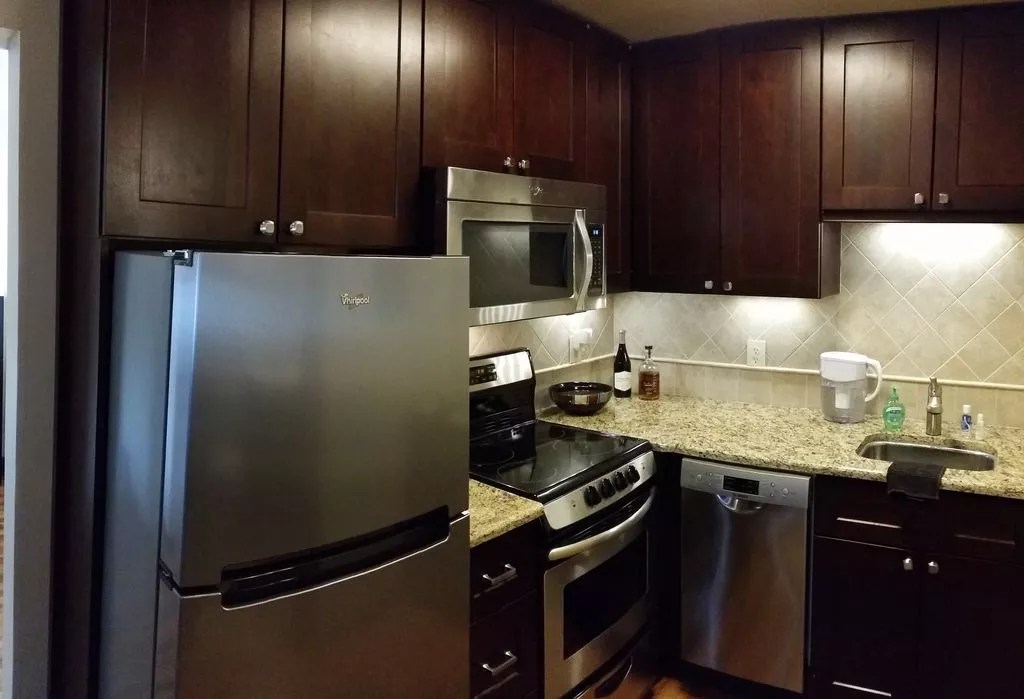

Audio By Carbonatix
In hopes of getting a handle on the size and makeup of this city’s rental market and also raising the floor for dwelling requirements, Denver City Council has enacted a new landlord licensing system as part of a Healthy Residential Rentals for All program.
“This is a basic responsibility for a city the size and depth of Denver, that we know what our rental stack is and it meets basic habitation rules,” Councilmember Jamie Torres said during the May 3 council meeting before her colleagues unanimously approved the proposal.
The ordinance, championed by council president Stacie Gilmore, sets minimum standards that residential landlords will have to meet in Denver in order to receive a license to rent out a property. The standards include appliances being in “good working condition” and “free of leaks”; landlords must also ensure that “all dwelling units within a residential rental property contain a functioning smoke detector, carbon monoxide detector, and fire extinguisher.”
Starting in January 2022, the ordinance will establish new renter protections, such as a requirement that landlords provide renters with information on how to make a complaint related to minimum housing standards.
Landlords who violate provisions of the new ordinance – the enforcement of which will be overseen by the Department of Excise and Licenses – will be subject to license suspension, revocation or other sanctions. But even if the city suspends or revokes a license, the lease for the property will remain in effect for the duration of the lease terms.
Beginning in 2022, landlords will need to apply for per-parcel licenses on a four-year basis; they’ll also need to hire third-party inspectors to check over their properties to make sure they comply with city guidelines. Landlords of multi-family rental dwellings will need to have their rental licenses approved by the beginning of 2023, while landlords of single-family rental units will need to have their licenses by the start of 2024.
Landlords must pay annual fees for each application that will vary depending on the size of a parcel. The application fee for a single dwelling unit will be $50, or $25 if the application is submitted before the beginning of 2024. After that, the license fee per year for such a unit will be $50.
The application fee for a parcel with two-to-ten units will be $100, or $75 if the application is submitted before the beginning of 2023. After that, the landlord will pay $100 every four years for the two-to-ten unit parcel. The four-year licensing fees increase relative to size up to $500 for apartment complexes with more than 250 units.
Housing owned or operated by government agencies will be exempt from application and license fees, as will income-restricted housing run by nonprofits.
The ordinance had been praised by affordable-housing advocates and homeless-service providers, but also drew opposition from real estate, development and property-owner representatives.
“Naturally, those costs are going to get passed through to the tenant,” Peter Wall of the Denver Metro Association of Realtors said during an April 14 council committee meeting.
At the same meeting, Drew Hamrick of the Colorado Apartment Association said he worried about the burden on mom-and-pop landlords, and criticized the proposal’s approach of issuing licenses per individual parcel rather than per landlord.
Industry representatives also expressed concern about increasing costs for landlords in general. A Denver group is currently gathering signatures for an eviction legal defense fund ballot initiative that would place another $75 fee on individual units.
This story has been updated to reflect the four-year licensing costs.